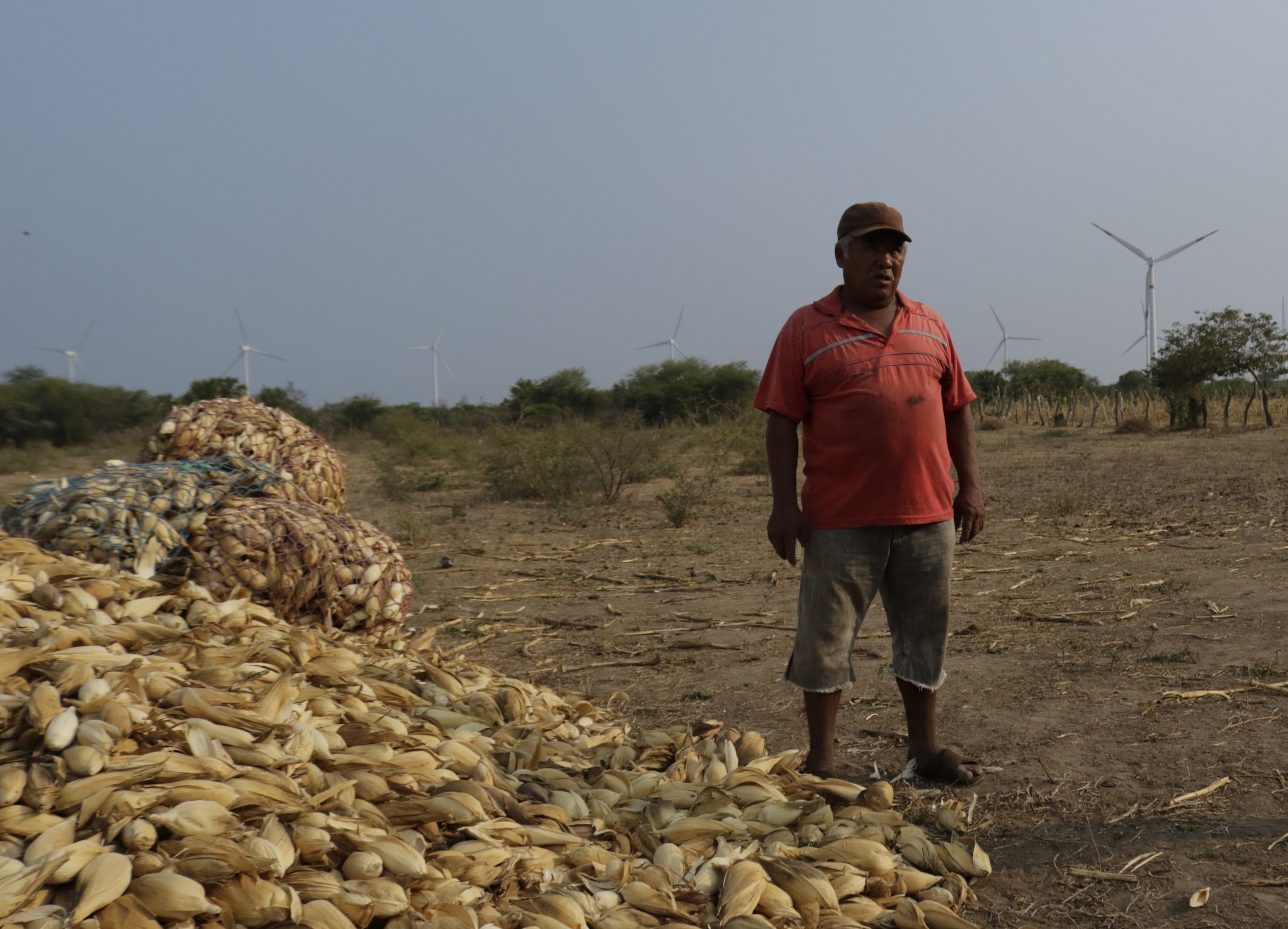In Juchitán, resistance against Neoliberal wind turbines inspires. It helps to understand how globalization from below (and to the left) is capable to challenge globalization above.
We arrived at the Isthmus region. We were welcomed by Mario and Betina, members of the Assembly of the Indigenous Peoples of the Isthmus in Defense of Land and Territory (APIIDTT) and key organizers of the El Sur Resiste Caravan. They will be our companions and guides in the next two weeks in which we will visit key spaces to understand the radical transformation that the wild industrialization spearheaded by the Progressive 4T Government is causing in the south of Mexico.
Carlos, organizer of the community Radio Totopo in Juchitán –which is in the process of rebuilding after the devastating earthquake of 2017– introduces us to Mr. Celestino, who uniquely embodies people’s resistance against the industrial wind turbine complex.
Traveling few minutes we reached the countryside of Juchitán, Oaxaca, and entered extensive land that used to be farmland and that is today big forests of windmills that generate electricity. (On the Isthmus there are more than 30 wind farms with thousands of generators. The one that surrounds Celestino’s field has 117 generators.) We estimate at least thousands of these occupy hundreds or thousands of acres. Electrical windmill companies pay a pittance to occupy valuable land although they are sometimes forced to pay a more substantial rent, even more money than a peasant family would earn farming their land. The Spanish corporation constantly puts pressure on the peasants who are obstinate not to rent. Is it just a coincidence that so narco hitmen appear at the same time harassing anyone who refuses to be dispossessed? In this context, Don Celestino rejects the money offered and resists attacks and threats. Surrounded by uncultivated lands and a forest of windmills, a flourishing farm challenges them on Don Celestino’s land. Traditional cornfields and fruit trees contrast grotesquely with a territory dominated by the wind turbine industry. Abandoned farmlands since the company Gas España imposes as a condition to rent the land, that it is no longer cultivated. Don Celestino is a stone in the shoe of the corporation. At least, he shows neighboring families that were dispossessed by renting their land that another way of living is possible and that living with dignity is inspired by traditional forms of community and agriculture.
Don Celestino’s resistance shows that singular, local resistance can successfully challenge a multinational corporation. He and Carlos tell us what happened when Don Celestino changed his mind and decided that he did not want to rent his land. “There are no offices for that in Juchitán, you have to go to the office in Mexico or Spain”, was the company’s answer. Offensive, right? But that’s what Don Celestino did. Backed by the National Indigenous Congress (CNI), he managed to mobilize supportive people who jumped the fences of the Gas España office in Mexico City in order to demand that the transnational company return his land. Meanwhile, more people released a herd of sheep in an office of the corporation in Spain, pressing for the same demand. The corporation relented and returned the land to Don Celestino although it has continued to harass him.
Carlos was asked if he prefers to live in Juchitán or Oaxaca City. Juchitán, he answers quickly adding that in Oaxaca there is a lot of poverty. Poverty that, sadly he explains to us, penetrates Juchitán. The wind farms tear the traditional social fabric, they bring in a lot of people from outside who, in general, cultivate the power of money and violence. It is true that they bring more money but also much more inequality, many more poor people and a minority of nouveau riche as well. And with them their hitmen also arrive spreading terror and seducing the youth. Violence orders lives. Before, the Juchitecas used to wear gold earrings; today, with so many thieves and hitmen, that sounds crazy.
But nothing is written in stone. In Juchitán we face a huge capitalism against a tiny resistance. And again the mouse can get to hit, or at least give a few blows to the capitalist giant. He is a mouse that touches many fibers which, by vibrating in synchrony, sow the future.


